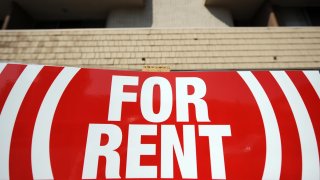
The San Diego City Council Tuesday voted unanimously to adopt a study that aims to analyze existing affordable housing options throughout San Diego and ways to preserve affordable housing for vulnerable residents.
The 94-page report – “Preserving Affordable Housing in the City of San Diego” – can be read, in full, here. It was produced by the San Diego Housing Commission on the direction of San Diego City Council President Georgette Gomez, who has long fought for affordable housing.
Gomez spoke about the study at a news briefing last week, calling the research a “tool in the toolbox” as San Diego continues to look for ways to build and preserve affordable housing for low-income renters.
The report identifies 10 strategies for the preservation of affordable housing and is intended to be, as Gomez noted Tuesday, “a framework for action going forward.”
The study is built on five questions:
- What are the characteristics of the City’s deed-restricted and unrestricted housing stock?
- How has the City’s housing stock changed over time and how will it look in the future?
- What are the characteristics of the City’s naturally occurring affordable housing (NOAH) unrestricted units?
- How much would it cost to preserve these housing units?
- Which existing and potential funding sources, policies, tools and programs can support a balanced approach to housing preservation?
The report notes that the city of San Diego’s population grew by 8% from 2010 to 2018, to 1.4 million people.
Local
“As a result of rapid population growth, coupled with an increasingly constrained supply of housing and a level of new production unable to keep up with that of job creation, rents have risen rapidly,” the report states. “This has created a rent affordability gap, and the current trend indicates that this gap will continue to grow.”
According to the study, there were approximately 91,900 housing units in San Diego in the year 2000 that were affordable for very low-income households. Twenty years later, there are 25,900 unit in the city projected to be affordable to very low-income families.
That’s a 72% decrease in affordable housing inventory, the study said.
“This decrease occurred in naturally occurring affordable housing units that do not have deed restrictions requiring them to maintain affordability,” a press release noted. “They are affordable because of market factors.”
The study talks about trying to preserve 9,250 naturally occurring affordable housing units that are at risk of becoming unaffordable by 2040 due to those increasing rents and redevelopment factors. This is 30% of more than 32,000 naturally occurring affordable housing units at risk of becoming unaffordable by 2040.
The study said an average of 750 new, deed-restricted, affordable housing units can be expected to be built each year in San Diego between 2020 and 2040. But, during that same time period, the affordability status of an existing 4,200 units will expire, which is about 200 units per year, the study said.
According to Gomez’s research, more than half of all renting households in San Diego spend more than 30% of their income on housing, and thus, are “cost-burdened.”
Gomez – who is also running for Congress – has made housing preservation a priority since 2017 when she released her Housing Action Plan.
The San Diego Housing Commission has created a database of deed-restricted affordable housing units citywide and commissioned this study to identify housing preservation needs. The study aims to recommend strategies for policymakers to consider.
The San Diego Housing Commission wants to set aside approximately $22 million to preserve affordable housing in its Fiscal Year 2021 budget. That will need approval from the San Diego City Council.
The 10 strategies outlined in the report are:
- Provide seed funding to create a public-private Affordable Housing Preservation Fund that is a dedicated source of funding for preservation activities.
- Redirect funds originally associated with the Redevelopment Agency of the City of San Diego and its dissolution to fund preservation.
- Implement a Short-Term Rental Fee with revenue dedicated to preservation.
- Adopt a Preservation Ordinance to strengthen and expand the rights granted by the State Preservation Notice Law.
- Offer incentives to owners of unrestricted properties in exchange for recording affordability restrictions.
- Strengthen San Diego’s existing Single-Room Occupancy (SRO) Ordinance to maintain affordability.
- Require relocation assistance for displaced residents.
- Develop and staff the administration of a preservation program.
- Create an interagency preservation working group, to be convened by the San Diego Housing Commission.
- Create a preservation collaborative composed of non-governmental preservation stakeholders.
You can read details on each strategy, in full, in the report here.



